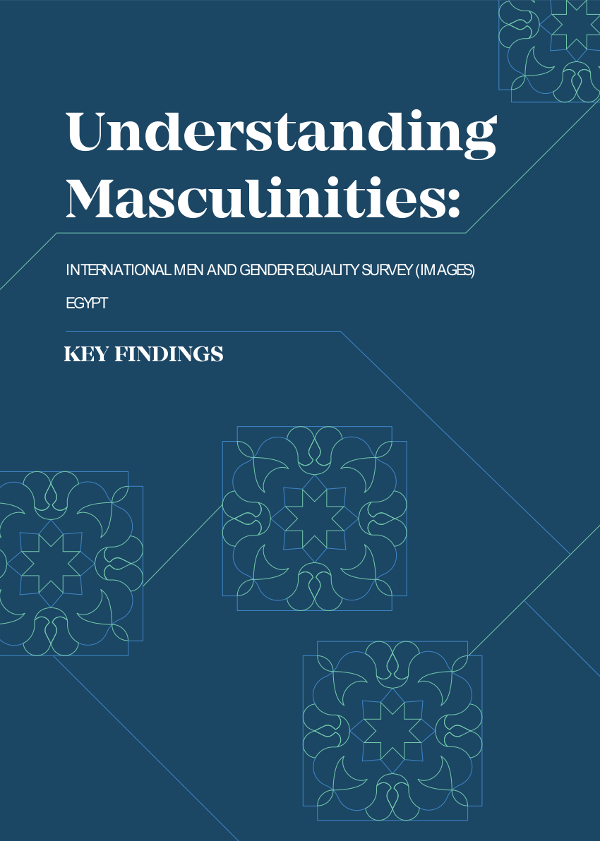
Understanding Masculinities: International Men and Gender Equality Survey (IMAGES) - Egypt - Key Findings (2016-2017)

The International Men and Gender Equality Survey (IMAGES) is a comprehensive study on men’s attitudes and practices – along with women’s opinions and reports of men’s practices – on a wide variety of topics related to gender equality and women empowerment. Consisting of both a household survey and companion qualitative research, the overall goal of IMAGES is to build understanding of men’s practices and attitudes related to gender equality and women empowerment in order to inform gender equality and women empowerment policies through the engagement of men and boys.
IMAGES Egypt Key Findings Report (2017) was conducted by local partner organizations, including El-Zanaty and Associates (for the quantitative research) and the Social Research Center of the American University in Cairo (for the qualitative research), within the scope of the UN Women Regional Program: Men and Women for Gender Equality, funded by the Swedish International Development Cooperation Agency (SIDA). The study was conducted under the auspices of the National Council for Women in Egypt, with the approval of CAPMAS.
The quantitative survey selected a sample of 3000 households representing urban and rural areas in five governorates in Egypt. The selected governorates represent the different regions of the country, one from an urban setting (Cairo), two from Lower Egypt (Menofia and Sharkia), and two from Upper Egypt (Souhag and Beni-Suef). A multi-stage cluster sampling was designed and applied using the 2014 EDHS master sample as a frame. A total of 1380 men and 1402 women were successfully interviewed during the survey which cannot be considered nationally representative for Egypt at large.
The Egypt questionnaire covered a range of topics related to gender equality and women empowerment: socio-economic characteristics; childhood experiences; marriage and divorce; migration; household relations; parenting; family gender dynamics; gender-based violence; female circumcision; work experience; migration; quality of life; physical and mental health indicators; attitudes toward women in public life and laws and policies related to gender equality and women empowerment.
The qualitative study consisted of focus group discussions (FGDs) and in-depth interviews. Discussions included: gender roles, violence and FGM, aspects of masculinity, identity and gender equality relations, others were designed to help with the interpretation of some of the unexpected findings in the quantitative survey.